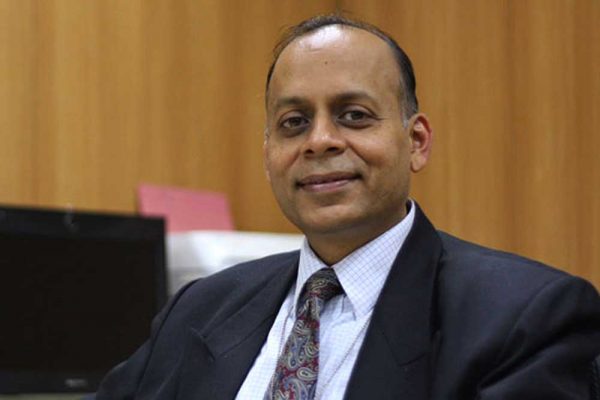
New Delhi: The functioning of the defence forces has remained unaffected by the COVID-19 pandemic and as Defence Secretary Dr Ajay Kumar said that it was “heartening to note that the Armed Forces have prepared and implemented Standard Operating Procedures (SOPs) to ensure that the forces remain operationally ready and do not get paralysed by the pandemic.”
In a wide ranging talk with a leading English daily, he said that even though COVID-19 has been a cause of several concerns, at the same time it has also opened new opportunities.
“To be operationally ready despite the constraints imposed by COVID-19 has been one of the biggest challenges faced by Armed Forces. And we can say proudly that Armed Forces have been able to do so with determination and careful planning,” Dr Kumar said.
He said ships, airplanes and land forces “have remained operationally ready and have carried out the tasks assigned with success. New SOPs had to be developed regarding what could be done and what could not be done. Armed Forces have also been asked to support the civil authorities in the fight against this pandemic. This has implied Armed Forces take up new tasks.
“All across the country, different organisations have come forward to contribute their might to supplement the efforts of civil Government in the fight against COVID-19. Whether it is for setting up of quarantine centres across the country in real time, or earmarking medical facilities for the COVID patients, Armed Forces Medical Services has been equal to the task,” he said.
“We have deputed teams to friendly countries to support them in their efforts against COVID-19. Similarly, IAF and Indian Navy have ferried Indians to enable them to come back,” Dr Kumar said.
He said COVID-19 has also offered several opportunities from defence perspective and among the important one relates to great encouragement it has provided to domestic innovation.
“Whether it is for developing equipment or devices for dealing with the pandemic or developing tests for detecting patients or developing vaccine against the disease, the pandemic has seen much greater acceptance of indigenous technologies and solutions as never before,” he said.
He was very hopeful that the push for indigenous innovation will rub off on other areas which have direct implication for defence and aerospace as well.
“Several of the industry and start-ups who have come forward are same as those in defence and aerospace area,” he said.
On the possibility of significant cuts in defence expenditure due to the economic situation, Dr Kumar said that it was too early to “speculate on budget cut on defence modernisation. However, under no situation do we compromise the security of the country.”
He felt that it was also an opportunity to implement some long pending reforms and cut unnecessary expenditure in defence and there was need to optimally use resources and this could greatly help modernisation of the armed forces.
Dr Kumar said efforts to promote indigenous manufacturing in defence and aerospace, both for domestic market as well as exports are ongoing and will continue post-COVID-19 also.
The Defence Secretary said that they were continuously working with the industry to address the issues raised by them and have extended last date for responding to the EoI/RfPs for capital procurement to June One to enable them to participate effectively.
“Similar approach is also adopted for revenue procurements by the Department of Military Affairs. All DPSUs agreed to expedite payments to MSMEs. Big Government PSUs and Departments like OFB, BEL, BEML, MDL have already made sure that payments due are being immediately made once the due is established,” he said.
The government has also extended the time for consultations on the draft DPP 2020 which was supposed to end on April 17. This will provide some more time for industry to prepare their response to the public consultation process which is underway but some industry were not able to attend to it due to COVID-19 related constraints, he said.
“Several projects have been taken up in recent past for modernisation of OFB. One of the main project is JV between OFB and Kalashnikov of Russia which will be manufacturing AK-203, one of the latest assault rifle in the world, in India,” he said.
The RfP for nearly 7.5 lakh rifles has been floated and response received. Based on the evaluation of RfP, we expect the production to start in this OFB plant soon, Dr Kumar said.
“Innovation has been another new trend that we have initiated within OFB. OFB has started making new products and solutions. During 2018-19, for the first time, OFB filed over 100 patents. This is extremely positive,” he said.
The Government in a major reform in higher defence has set up the institution of CDS which has brought into effect a mechanism which will induce greater jointness in the defence forces, he said.
During the COVID-19 pandemic, the defence forces have played a significant role coordinated by the CDS. Several new initiatives towards jointmanship are in various stages of consideration. These have had their impact in the role which Armed Forces have played during the COVID-19 crisis and will be further in view in coming months, he said.









